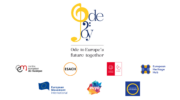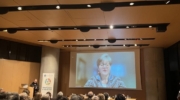Future cohesion funding – Europa Nostra contributes to public consultation
Europa Nostra submitted its replies to two public consultation on EU funds organised by the European Commission and which are expected to feed into the discussions for the next Multiannual Financial Framework of the European Union and future funding programmes. One consultation concerned the area of values and mobility, another one the area of cohesion.
The consultation on EU funds in the area of cohesion also concerns the European Regional Development Fund (ERDF). This is one of the largest sources of EU funding for heritage-related projects: According to information published by the European Commission, more than EUR 11 billion funding has been attributed to cultural heritage-related projects since 2007. In comparison: the cultural heritage sector received in total “only” EUR 27 million of funding through the Creative Europe programme since 2014 (see figures published in this brochure). It is noteworthy that among the winners of the EU Prize for Cultural Heritage / Europa Nostra Awards, there are every year several projects which previously benefited from cohesion funding.
In its reply to this consultation, Europa Nostra called for more explicit reference in the programme objectives to the multiple benefits of cultural heritage for society, economy and the environment as demonstrated by the report “Cultural Heritage Counts for Europe”. Concretely, programme objectives should state the need to promote and support heritage-led urban and rural regeneration. More synergies could be achieved by putting more emphasis on the value and potential of heritage-led urban and rural development strategies and projects in other policy fields, such as climate change and tourism, to name but a few.
Moreover, Europa Nostra strongly recommends that EU policy objectives should more explicitly refer to the key role of culture as the main engine of the European project and also to the outstanding European added value of culture and cultural heritage in promoting social and economic cohesion, as well as in fostering the sense of European identity (as recently discussed by EU Culture Ministers at their informal meeting on 28 February in Sofia). Recognising more explicitly the capacity of cultural heritage to provide and create substantial socio-economic benefits at the local, regional and national level as well as across borders will enable EU funds in the area of cohesion to fully tap into the potential of cultural heritage as a strategic resource for the benefit of Europe’s cities and regions, citizens and communities in Europe.
As supporting evidence, Europa Nostra enclosed a summary of the 10 key findings of the report “Cultural Heritage Counts for Europe”.
Background information
According to the European Commission, the replies from participating individuals and organisations will be taken into account when “designing comprehensive proposals” for the post-2020 Multiannual Financial Framework and for the next generation of financial programmes.
In fact, the European Commission launched a whole series of public consultations in early January 2018 covering the entire spectrum of EU future funding in the following areas: Cohesion; Investment, Research & Innovation, SMEs and Single Market; Migration; Security; Strategic Infrastructure; Values and Mobility. These public consultations were open to individual and organisations from 10 January until 9 March.







